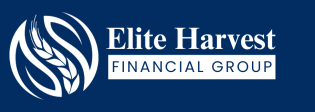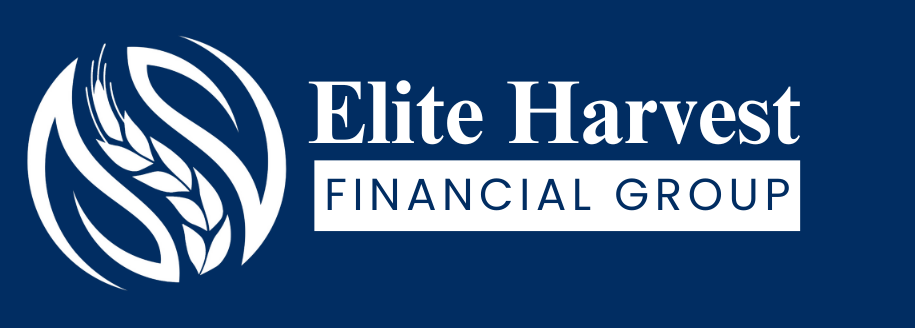Did you know that a home loan refinance could potentially save Whitby homeowners an average of $3,100 per year in mortgage payments?
That’s right – thousands of dollars that could be staying in your pocket instead of going to your lender. In today’s fluctuating interest rate environment, many homeowners are missing out on significant savings simply because they haven’t explored their refinancing options.
The truth is, your mortgage shouldn’t be a “set it and forget it” financial product. As your life circumstances change and market conditions shift, what was once the best mortgage for you might no longer be optimal.
For Whitby homeowners specifically, local market conditions, provincial regulations, and property value trends create unique refinancing opportunities that differ from other Ontario regions.
In this guide, I’ll walk you through everything you need to know about refinancing your home loan in Whitby. You’ll learn when refinancing makes financial sense, the top five strategies to maximize your savings, important costs to consider, and how to determine if this move is right for your specific situation.
What is Home Loan Refinancing?
Home loan refinancing represents a significant financial strategy that allows homeowners to replace their current mortgage with an entirely new one. Unlike minor modifications to your existing agreement, refinancing creates a fresh contract with different terms, conditions, and interest rates tailored to your current financial situation.
How refinancing works in Canada
The refinancing process in Canada enables homeowners to borrow up to 80% of their property’s appraised value. This percentage represents the maximum loan-to-value (LTV) ratio permitted for refinancing in the Canadian market. After determining how much equity you’ve built in your home, you can access these funds through either increasing your existing mortgage or establishing a home equity line of credit (HELOC).
Refinancing involves several key steps. First, you’ll need to evaluate your current mortgage terms, remaining balance, and any potential penalties. Additionally, lenders will review your credit score – a crucial factor in securing favorable terms. During this assessment, your income, debt service ratios, and credit history undergo thorough examination.
The documentation requirements mirror those of your initial mortgage application:
- Identification
- Proof of employment and income
- Details of assets, savings, and debts
- Tax documents
- Property appraisal results
Furthermore, you must complete a mortgage stress test to demonstrate your ability to manage payments even if interest rates increase. Once approved, the lender will arrange the legal components, typically requiring an attorney or notary to review agreements and prepare necessary documentation.
Key differences from mortgage renewal
Mortgage renewal and refinancing represent two distinct financial paths, though many homeowners confuse these options. During a renewal, which occurs at your mortgage term’s conclusion, you extend your existing mortgage agreement – potentially negotiating a new interest rate or term length while maintaining the same mortgage amount and amortization period.
In contrast, refinancing allows for more substantial changes:
- Timing: While renewal happens only at the end of your term, refinancing can occur at any point during your mortgage – though penalties may apply when breaking a contract mid-term.
- Flexibility: Refinancing permits fundamental changes to your mortgage structure, including extending the amortization period, adding or removing individuals from the property title, or significantly increasing the borrowed amount.
- Approval Process: Renewal generally requires minimal reassessment, whereas refinancing necessitates a complete reapplication and approval process, including credit checks and property valuation.
- Purpose: Renewal maintains your existing arrangements with possible minor adjustments, while refinancing often serves specific financial goals like accessing equity for renovations, consolidating high-interest debt, or securing more favorable interest rates.
Above all, understanding these differences helps determine which option best suits your financial circumstances. For those seeking to maintain their current arrangement with minor adjustments, renewal offers simplicity. However, homeowners requiring significant changes or equity access will find refinancing provides the necessary flexibility despite potential additional costs and requirements.
When Does Refinancing Make Sense?
Deciding on the right time to refinance your mortgage requires careful consideration of several factors. Evaluating your specific financial circumstances can reveal whether this strategy will truly benefit you in the long run.
Falling interest rates
One primary reason homeowners choose to refinance is when market interest rates drop below their current mortgage rate. Traditionally, the rule suggested refinancing when you could reduce your interest rate by at least 2%, although currently many financial experts consider even a 1% reduction sufficient motivation to explore refinancing options.
For instance, on a $278,672 mortgage with a 30-year term, refinancing from 6.5% to 5.5% could save approximately $280 per month—potentially resulting in over $103,660 in interest savings throughout the loan’s lifetime. With recent Canadian interest rate announcement from the Bank of Canada, many Whitby homeowners may find themselves in an ideal position to secure better terms.
Improved credit score
Your credit profile might have strengthened considerably since you first obtained your mortgage. Lenders typically offer their most competitive rates to borrowers with credit scores of at least 780. If you’ve improved your credit score through consistent payment history and responsible debt management, you might qualify for significantly better terms now than when you originally secured your mortgage.
Before applying for refinancing, check your credit reports with major bureaus like TransUnion and Equifax. Most lenders require a minimum score of 680 for refinancing approval, with higher scores unlocking progressively better rate options.
Need for cash or debt consolidation
Another compelling reason for refinancing involves accessing your home’s equity for specific financial needs. Through a cash-out refinance, you can borrow up to 80% of your home’s appraised value, using the difference between your new mortgage and current balance for various purposes:
- Consolidating high-interest debt into your lower-interest mortgage
- Funding major home renovations or improvements
- Covering education expenses
- Making significant investments
Since mortgage interest rates are typically much lower than credit card rates, consolidating high-interest debts can lead to substantial interest savings over time. Moreover, consolidation simplifies your finances by converting multiple payments with different due dates into a single monthly obligation.
Planning to stay in your home long-term
The duration you intend to remain in your home plays a crucial role in determining whether refinancing makes financial sense. Since refinancing involves closing costs and potential prepayment penalties, you’ll need sufficient time to recoup these expenses through your monthly savings.
Before proceeding, calculate your break-even point—the time required for your monthly savings to offset the refinancing costs. If you’re planning to sell your home before reaching this point, refinancing might not deliver the expected benefits.
Remember that refinancing isn’t just about securing a lower rate. Assess your overall financial goals, whether they involve reducing monthly payments, shortening your loan term, or accessing equity for important expenses. Each situation demands careful evaluation of both immediate costs and long-term benefits.
Top 5 Ways to Save Thousands by Refinancing
Refinancing your mortgage opens several pathways to substantial financial benefits. By strategically approaching your home loan refinance, Whitby homeowners can unlock savings through multiple avenues. Let’s examine the most effective methods to maximize your refinancing benefits.
1. Lower your interest rate
Securing a reduced interest rate remains the most straightforward way to save through refinancing. Historically, financial experts recommended refinancing when you could lower your rate by at least 2%, but currently, even a 1% reduction can justify the process.
Consider this practical example: On a $139,336 30-year fixed-rate mortgage with a 7% interest rate, your monthly principal and interest payment would be approximately $927. By refinancing to 5%, that same payment drops to around $747—generating substantial monthly savings.
The cumulative effect of this seemingly small percentage change becomes remarkable over time. Transferring to a lender offering better terms could potentially save you thousands of dollars in interest throughout your loan’s lifetime.
2. Shorten your loan term
Refinancing to a shorter term represents an often-overlooked strategy for long-term savings. For instance, converting from a 30-year to a 15-year mortgage might increase your monthly payment but dramatically reduces the total interest paid over the life of your loan.
In a concrete example, refinancing from a 30-year mortgage at 6.5% to a 15-year at 6% can yield interest savings exceeding $316,000 over the loan’s duration. As a bonus, lenders typically offer lower interest rates for shorter-term loans, further amplifying your savings.
This approach also accelerates equity building, allowing you to own your home outright in half the time—creating opportunities to redirect those funds toward retirement, travel, or investment once the mortgage is paid off.
3. Switch from fixed to variable (or vice versa)
Your financial outlook may benefit from changing your mortgage structure entirely. When interest rates are falling, switching from a fixed-rate to a variable-rate mortgage might lower your payments and provide flexibility.
Conversely, if you currently hold a variable-rate mortgage and face potential rate increases, refinancing to a fixed-rate option protects you against future payment spikes. This stability can be particularly valuable for homeowners planning to stay in their property for several years.
Some adjustable-rate mortgages don’t adjust for the first five, seven, or even ten years, essentially functioning as fixed-rate loans during that period—potentially offering the best of both worlds.
4. Consolidate high-interest debt
Perhaps the most powerful refinancing strategy involves consolidating high-interest debts into your mortgage. Since mortgage interest rates typically run significantly lower than credit cards or personal loans, this approach can dramatically reduce your overall interest burden.
Through a cash-out refinance, you can take out funds to pay off high-interest obligations, combining them into a single payment at your mortgage’s lower secured rate. This consolidation simplifies your finances while potentially accelerating your debt payoff timeline.
For example, if you owe $55,734 in combined credit card debt with interest rates between 12.99% and 19.99%, refinancing these into a mortgage at 4.64% would significantly reduce your interest costs.
5. Access home equity for major expenses
A home equity line of credit (HELOC) obtained through refinancing provides flexible access to funds at rates substantially lower than personal loans or credit cards. Homeowners can typically access up to 80% of their property’s appraised value minus the remaining mortgage balance.
For instance, if your home is worth $696,680 with a mortgage balance of $418,008, you could potentially borrow up to $139,336 through refinancing. These funds can finance renovations that increase your property’s value, fund education expenses, or serve as a financial safety net.
The revolving nature of a HELOC means you only pay interest on the amount used rather than the entire available credit—offering cost-effective flexibility compared to traditional loans.
Costs and Risks to Watch Out For
While refinancing offers potential savings, understanding the associated costs is crucial for making an informed decision. Below are key expenses and considerations that could impact your refinancing outcomes.
Prepayment penalties
Breaking your mortgage contract early typically triggers prepayment penalties, which can significantly impact your refinancing savings. For fixed-rate mortgages, these penalties are calculated as either three months’ interest on your remaining balance or the interest rate differential (IRD), whichever is higher. The IRD can be particularly substantial if interest rates have fallen since you obtained your original mortgage, easily amounting to several thousand dollars.
For example, on a $278,672 mortgage with a 6% interest rate and 36 months remaining, your prepayment penalty could reach $16,720. These penalties typically apply during the first three years of your loan term.
Legal and appraisal fees
Refinancing involves numerous closing costs that typically range between 2% to 6% of your loan amount. These expenses include:
- Appraisal fees: $418-$697 to assess your property’s current value
- Legal fees: $975-$1,393 for processing the refinancing documentation
- Mortgage registration fees: Approximately $98
- Title insurance: Required by some lenders
Break-even point calculation
The break-even point represents how long it takes for your monthly savings to offset the refinancing costs. Calculate this by dividing your total refinancing expenses by your monthly payment reduction.
If refinancing saves you $279 monthly but costs $6,967 in fees, your break-even point would be 25 months. Consequently, if you plan to move before reaching this milestone, refinancing might not be financially beneficial.
Impact on long-term interest paid
Extending your amortization period may reduce monthly payments but can substantially increase your total interest costs over time. For instance, refinancing from a 20-year to a 30-year mortgage spreads payments over a longer period, potentially causing you to pay significantly more interest despite a lower rate.
Carefully evaluate whether short-term payment reductions justify the potential long-term increase in total interest paid.
How to Know If Refinancing is Right for You
Determining if a home loan refinance aligns with your specific circumstances requires thoughtful analysis. Making this decision involves more than just looking at market rates—it demands a personalized assessment of your finances and future plans.
Evaluate your financial goals
Initially, clearly define what you hope to achieve through refinancing. According to experts, homeowners should consider refinancing when interest rates drop significantly below their current rate, when they need to access home equity, or when consolidating high-interest debts makes financial sense. Ask yourself: Do you want to lower monthly payments, reduce your term, access equity for renovations, or consolidate debt? Establish whether you plan to remain in your home long-term, as this affects whether refinancing costs can be recouped. Identifying your primary objective helps determine if refinancing supports your overall financial strategy.
Use a refinance calculator
Subsequently, employ a mortgage refinance calculator to obtain concrete figures. When using calculators, gather essential information including your current mortgage balance, interest rate, remaining term, and estimated refinancing costs. Input this data accurately to receive estimates of new monthly payments, potential interest savings, and your break-even point. This analysis reveals whether the long-term benefits outweigh short-term expenses, ultimately helping you make an informed decision based on your specific situation.
Talk to a local mortgage broker in Whitby
Accordingly, consult with a Whitby mortgage broker for personalized guidance. Local brokers understand Whitby’s unique housing market conditions and can analyze whether potential long-term savings justify any short-term costs. They negotiate on your behalf to secure competitive rates and recommend mortgage structures tailored to your financial situation.
Conclusion
Refinancing your home loan presents a significant opportunity to improve your financial position through lower interest rates, shortened terms, or access to home equity. Whitby homeowners stand to save thousands of dollars annually by strategically restructuring their mortgages based on current market conditions and personal circumstances.
Your decision to refinance should align with specific financial goals rather than simply chasing lower rates. Therefore, take time to calculate your break-even point and evaluate whether the upfront costs justify the long-term benefits. Remember that prepayment penalties, legal fees, and appraisal costs can substantially impact your overall savings.
The timing of your refinance plays a crucial role in maximizing benefits. Falling interest rates, improved credit scores, or the need to consolidate high-interest debt often signal ideal opportunities to explore refinancing options. Additionally, homeowners planning to stay in their properties long-term typically reap the greatest advantages from this financial strategy.
Local market conditions in Whitby create unique refinancing opportunities that differ from other regions. Consequently, consulting with a local mortgage broker provides valuable insights tailored to your specific situation and the Whitby housing market.
Refinancing represents more than just changing your mortgage terms—it offers a pathway to financial flexibility and potentially thousands in savings. Armed with the knowledge from this guide, you can confidently evaluate whether refinancing makes sense for your circumstances and take steps toward optimizing your largest financial commitment.


![How to Save Thousands with a Home Loan Refinance in Whitby [2025 Guide]](https://eliteharvestfinancial.ca/wp-content/uploads/2025/11/Refinancing-your-Whitby-home-when-does-it-make-sense.jpg)




